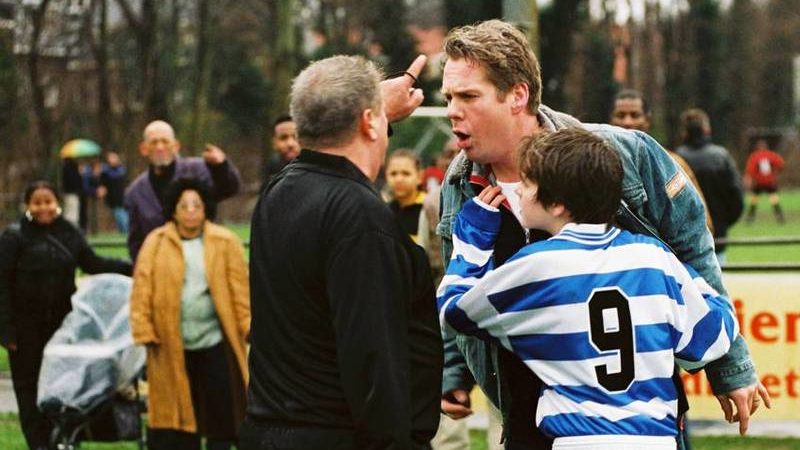A Job Guide for Young Coaches
In 2010 I became the head football coach at an inner-city school in Nashville. In doing so, I inherited a young assistant coach by the name of Bob Gecewich. After several years of coaching together, Bob moved on and has since become a head coach himself.
Over the years our friendship and respect for each other have remained. We talk often, usually about attacking opponents or new schemes that we have run across. It seems that more often we talk about common issues that we both encounter as head coaches; dealing with parents, weight room programs, fundraising, etc. On multiple occasions, the conversation has turned toward hiring and mentoring young coaches and the challenges that it presents.
As an attempt to improve that mentoring process, Bob and I have created a checklist from which we can start the discussion with our young coaches, but also can be used as an evaluation tool at the end of each season.I have been very blessed over my 43-year career to have been mentored by some great men. Men that patiently and sometimes not so patiently helped me refine my craft of coaching. I owe a debt of gratitude to each one of them for the wisdom they chose to pass on to me, and in their honor, I pass this on to the next crop of young coaches.
 We divided the items into three levels of expertise: Apprentice, Craftsman, and, finally, Master. We wanted a starting point that would allow the coach a framework from which to start, a growth plan to help him develop, and finally, a goal for himself.
We divided the items into three levels of expertise: Apprentice, Craftsman, and, finally, Master. We wanted a starting point that would allow the coach a framework from which to start, a growth plan to help him develop, and finally, a goal for himself.
This article will only deal with the first phase of the apprenticeship plan.
Apprentice: Getting started
- Show Up
- Demonstrate Integrity
- Be an Example
- Take Ownership
- Take Initiative
- Put Family First
- Define your drills
- Efficient use of Time
- Don’t Trust your Memory
- Be Coachable
You can’t get better if you don’t show up. As with any apprentice relationship it only works if both parties are present and eager to teach and learn. Show up each day with energy and passion to do your job. As a player, you might have missed because you were having a bad day. As a coach, you don’t get that luxury. You have made a commitment to this team — show up and grow.
Integrity is measured over time; it doesn’t change day-to-day. Be reliable, honest, and loyal to your players and to your head coach every day. Be honest with your players, if you don’t know the answer to a question say, “I don’t know, but I will find out.” One of my previous bosses would say, “Above all else be loyal. If you are loyal, then you do all the other things naturally.”
Be an example for your players. If you want them to work hard, be on time, hustle, ask questions, and be accountable then you must model that behavior for them. Be aware that you are a coach now, not a player. Watch your language and actions. I had a young coach who was sitting down one day watching a drill. When I corrected him, his response was “I am exhausted, this teaching and coaching are not easy.” The problem was he was still acting like a kid in his day-to-day routine, staying up late, playing video games, going out with friends. As we grow up our routines must change to reflect our priorities and obligations.
Take ownership of your position. Do the jobs that are assigned to you, without having to be reminded or supervised. If you want the responsibility to be assigned to you then you must demonstrate that you can handle it. If you are the defensive backs coach, then be the head coach of the defensive backs. This doesn’t mean that you have all the answers or don’t need help, it means that you have the maturity to seek out the answers and ask for help when needed.
Take initiative, look for things to do that add value to your position. Equipment issues, putting up field equipment, and taking out the trash are all things that must be done. It is like I tell my offensive line guys on pass protection, “Look for work!” Don’t think because no one comes through my gap I can take a play off, look for someone to help. As a young coach, one of your assets is your youthful energy. Use it to your advantage by looking for ways to help and in so doing you will learn how to do more things that in turn make you more valuable to the team.
Most young coaches are either recently married or thinking about it. Whatever your situation may be, those relationships are extremely important. It is impossible to be fully engaged in what you do if there are problems at home. As coaches, we spend too much time with other people’s kids and not enough with our own. Make family your number one priority. Make sure your partner feels like a partner, share your life and theirs. Spend quality time with family. When you are at home, “be at home!” Turn off the cell phone. Kids know that you have a job, but they should know that they are your number one concern.
Drills give the opportunity to teach and execute a skill to perfection in a controlled environment. Game scenarios create imperfect situations, but the difference in a skill executed at 85 percent of perfection and 85 percent of imperfection can be the difference in a win/loss or game-saving tackle/career-ending injury.
Here are three things to remember:
- Define the purpose of the drill. Be specific and clear.
- Define the space for the drill. Use cones, hoses, bags, yard markers. All games are played with boundaries, so should drills.
- Most drills should have a predetermined winner. Structure success for the player that you are training. Success builds confidence.
Time is your enemy. You only have a limited amount of it, and it can’t be reclaimed. Limit your drills so that you are not having to explain new things every day. Limit your vocabulary to the important things by creating a set of short phrases for your position. Less talk and more reps create better results. If you are having to explain and re-explain, the problem may be with you, not them.
» ALSO SEE: Achieving Level II in Athletics
Don’t trust your memory. “We did it this way” is not always accurate. We remember things from our playing days the way we want to remember them, not necessarily the way they were. For example, you probably didn’t practice for six hours in 120-degree heat with no water breaks or run 127 gassers in one day, or line up 20 yards apart for tackling drills and just run over each other. And you probably weren’t as good as you remember. But even if you were, you aren’t playing, they are. So, it is not about what you can do, it is about what you can teach them to do.
Just like when you were a player “Be Coachable”. You are going to get coached by the head coach, offensive coach, or defensive coach. Don’t be offended by criticism, expect it, ask for it. Take it as an opportunity to get better at your job. Disagreements happen in the office, not on the field. Earn the players’ respect by your relentless compassion for them and your commitment to the program.
I wish you all good luck in your endeavors and hope this helps you along the way!





